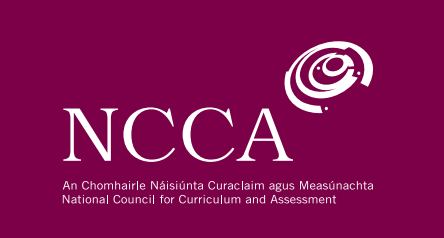NCCA Senior Science Consultation Report Published
Last year the National Council for Curriculum & Assessment published new draft syllabi for senior cycle Biology, Chemistry & Physics and launched a period of consultation to seek advise from teachers, parents, students, universities and interested bodies on the direction of senior cycle science in Ireland. This involved a series of meetings between the NCCA and organisations like the Irish Science Teachers Association (ISTA), Discover Science & Engineering, Engineers Ireland and the Health & Safety Authority as well as a comprehensive online questionnaire for interested individuals (of which over 500 made submissions online). That consultation process is now closed and the NCCA have published a detailed report on the submissions made.
I took particular interest in the new draft syllabi when they were published and attended a very interesting and productive ISTA meeting in Blackrock College back in September, as well as completing the online questionnaires. Personally I felt that there was some good progress made, specifically the "key skills" within all three syllabi and in the new proposed approach to assessment (Sadly, the NCCA didn't publish a sample exam with the new syllabi but later did provide "sample question" - which they had not produced themselves). However, I had some concerns about the knowledge content in the syllabi - which I felt was diluted too much, particularly in biology, and that much of what is current in science isn't included (interestingly, the overall feedback to the NCCA was that the syllabi were actually too long). Below is an extract from that post on my initial views of the syllabi content.
The new physics course finally mentions the word "space" in the syllabus (four times!) yet there is no mention of astronomy nor any compulsory astronomical study. The space section is so short it is likely to be one of the shortest chapters in the new overly priced textbooks that will accompany the syllabus. The word "quantum" does not appear in the physics syllabus. The particle physics option appears to have been removed (except for a brief note on "the operation and applications of particle accelerators") but an introduction to seismology is a welcome sight.
In the new biology syllabus there appears to a further "dumbing down" of biochemical reactions like photosynthesis, respiration and protein synthesis while the addition of some discussion on the ethics of stem cell research is mentioned (the word stem cell is mentioned once in the syllabus), most of the content has merely been tinkered with. The terms "bioinformatics" and "GM organisms" are mentioned, which is admirable, and there is a great focus on gathering and analysing data.
The chemistry syllabus too has merely been tinkered with, when analysed carefully, and I am particularly dismayed by the listed learning outcomes here. Unlike the biology and physics syllabi, the new chemistry syllabus overly uses the terms "define", "state", "explain" and "outline" within their learning outcomes - terms all to often associated and used in examinations. The only real addition I can see in the new syllabus is a short section on forensic science.
The NCCA will now return to the drawing board and look to make changes based on the submissions received. This is likely to focus particularly on how the syllabi will be assessed, the length of the syllabi, their learning outcomes, practical coursework (and its assessment), the use of ICT in the teaching of learning of senior science and on the effective introduction of the syllabi in to secondary schools. When these new courses will be introduced is difficult to say and will depend on the funding available (and probably some union involvement considering the assessment of the practical component). Clearly teachers will also require in-service training on the new courses and new equipment will need to be purchased for some practical investigations. It certainly doubt it will be Sept 2012 or indeed 2013.

